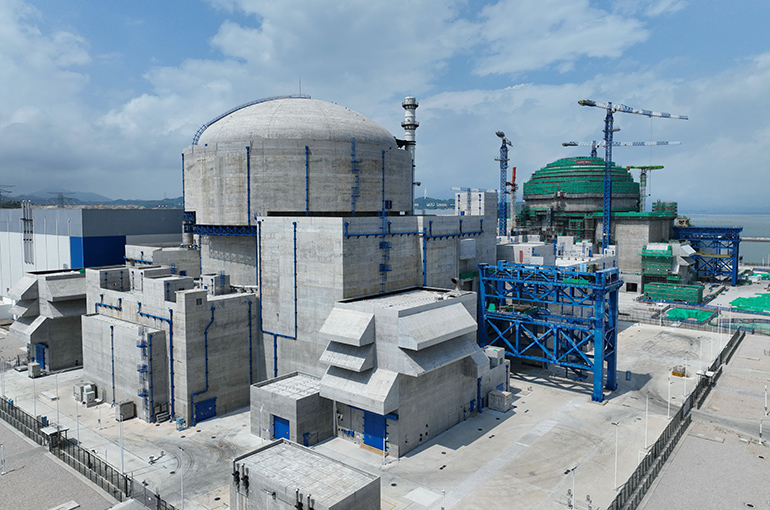 China Has Effective Nuclear Safety System, Ministry Says
China Has Effective Nuclear Safety System, Ministry Says(Yicai) April 23 -- China has in place an effective regulatory framework that fully ensures the construction quality and operational safety of its nuclear power plants, according to the Ministry of Ecology and Environment.
Regulators have implemented end-to-end quality control and safety management for nuclear power projects from site selection, design, and construction through equipment manufacturing, installation, commissioning, and operation all the way to decommissioning, Hou Yingdong, director of the ministry’s nuclear safety department, said at a regular press briefing today.
All newly built atomic power units in China use third-generation or more advanced reactor technologies, offering enhanced safety, Hou disclosed.
Regulators also conduct strict qualification reviews for nuclear plant personnel, including reactor operators, and maintain round-the-clock on-site supervision of critical activities related to nuclear safety, he added.
China has also developed a robust safety supervision system for radioactive waste. Enterprises are required to strictly comply with discharge standards for gaseous and liquid radioactive waste and adhere to regulations for the disposal of solid waste, according to Liu Lu, who heads the ministry’s radiation safety department.
Each one-million-kilowatt reactor unit generates no more than 50 cubic meters of low-level radioactive solid waste annually, Liu noted. After a set storage period, this waste is transported to centralized disposal facilities.
For example, low-level radioactive solid waste sent to the Longhe near-surface disposal site in northwest China will decay into harmless substances over several hundred years, Liu said. The site is located in the Gobi Desert, which offers a dry climate favorable for waste containment.
Environmental monitoring data around the Longhe site has shown no significant changes since it began accepting waste from nuclear power plants, per Liu.
China is also advancing new nuclear waste disposal technologies. Liu revealed that the country has begun a feasibility study on setting up a commercial nuclear waste reprocessing plant and is launching a pilot program for the deep geological disposal of high-level radioactive waste, which includes building an underground research laboratory.
The ministry supervises these pilot programs through every stage to ensure the long-term safety of high-level radioactive waste, Liu noted.
China's mainland has 58 operational nuclear power units. In addition, 31 have received construction permits, while plans for another 13 have not yet obtained permits, per the ministry. Together, these units represent a total installed capacity of 113 gigawatts, positioning China to become the world’s largest producer of atomic power.
Editors: Tang Shihua, Emmi Laine